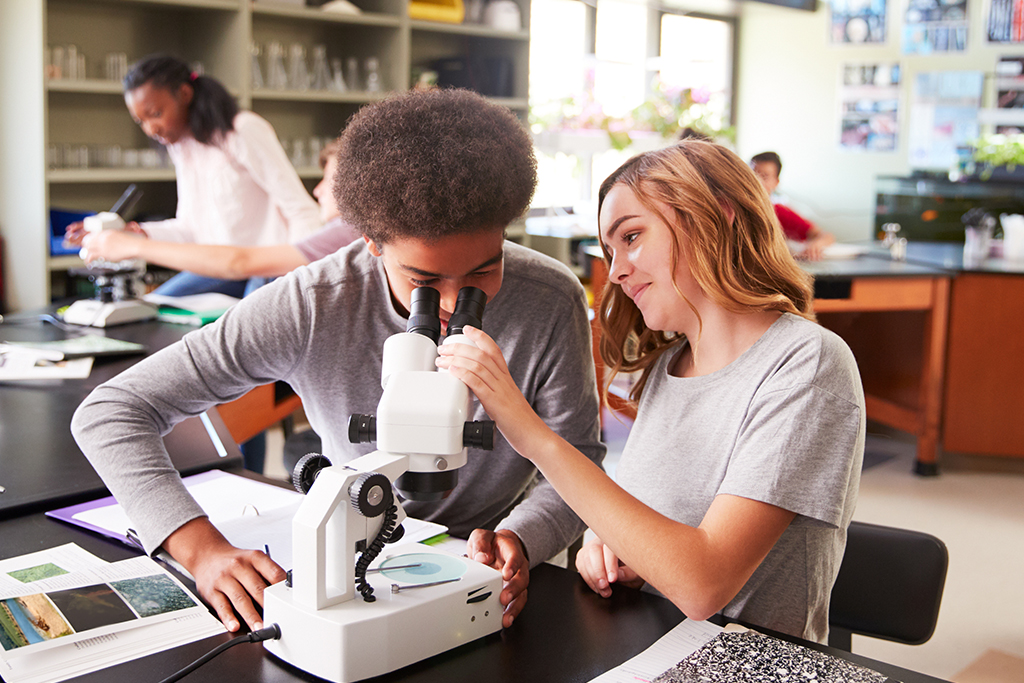Biology I + Lab
Introductory Biology I
Lab for Introductory Biology I
4 College Credits (3 for lecture, 1 for lab) | UT Course Codes: BIO 311C, BIO 106M | TCCN Courses: BIOL 1306, BIOL 1106 | Core Code: 030
High School Course Prerequisites: Biology and Chemistry

Think like a scientist and use critical thinking, scientific communication and graphing skills.
This introductory course and the accompanying lab focus on three main areas of molecular and cellular biology: the structure and function of biomolecules; the flow of energy through living systems; and how genetic information is expressed and transmitted within and between cells.
Students hone their skills through simulations, models, group work and lab experiences. They also learn how to communicate conclusions to others and how to use critical feedback to improve their scientific thinking.
Course Structure
Through Flipped Learning, students develop scientific thinking skills and active learning in an inclusive classroom environment. Additionally, students are guided in the development and integration of verbal, written and graphical communication skills.
Big Ideas
- Structure relates to function
- Energy is transformed in living systems
- Genetic information is expressed and transmitted
- Critical thinking for hypotheses, data analysis, quantitative reasoning
- Laboratory-based scientific skills
What Students Gain
- Data literacy
- Foundational knowledge applicable to any STEM major
- Critical and quantitative thinking skills

What Students Say
“I may have to take more advanced sciences in college, so this has helped build a foundation for those courses.”
